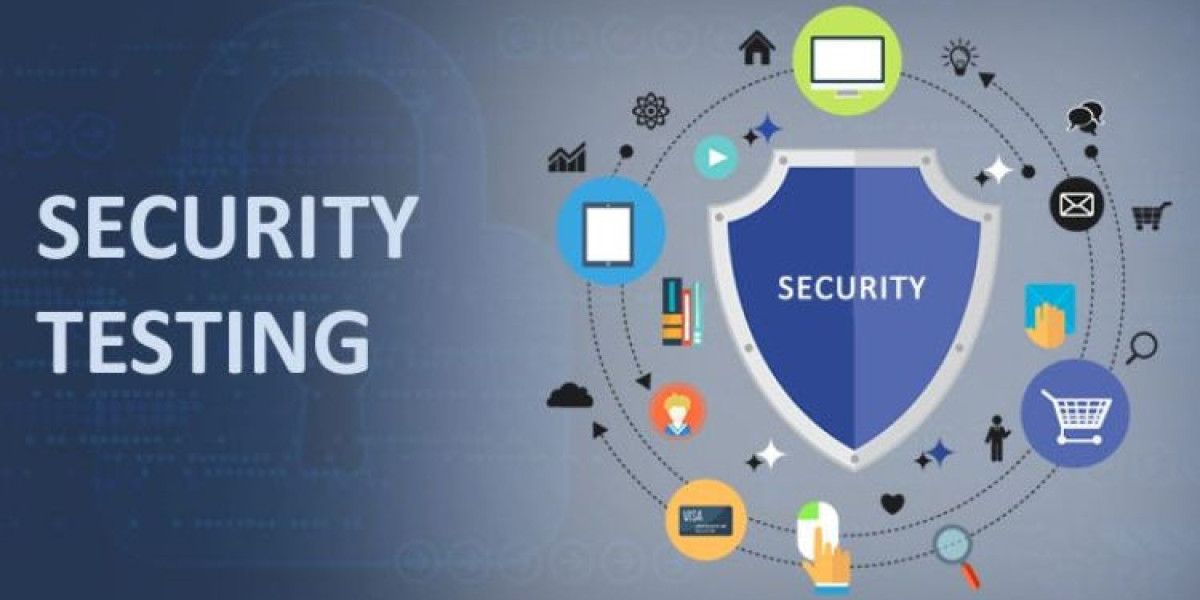In an era where cyber threats are evolving at an unprecedented rate, the need for robust security testing solutions has never been more critical. The global security testing market size reached approximately USD 10.52 billion in 2023. The market is estimated to grow at a CAGR of 18.2% during the forecast period of 2024-2032, reaching a value of around USD 48.95 billion by 2032. This impressive growth underscores the escalating importance of security testing across various sectors and highlights the increasing investments in safeguarding digital infrastructures.
Market Segmentation
By Testing Tool
1. Code Review Tool
Code review tools are pivotal in ensuring the security and reliability of software by analyzing code for vulnerabilities and adherence to coding standards. These tools help in identifying flaws early in the development cycle, thus reducing the risk of exploitation. Major players in this segment include companies like Checkmarx and SonarQube, which offer advanced code analysis solutions. The demand for code review tools is driven by the increasing complexity of software applications and the need for secure coding practices.
2. Software Testing Tool
Software testing tools encompass a broad range of functionalities designed to evaluate software performance, security, and compliance. These tools facilitate automated and manual testing processes to uncover vulnerabilities and ensure software robustness. Key players such as Micro Focus and IBM are at the forefront of this market, providing comprehensive testing solutions that integrate with various development environments. The rising adoption of Agile and DevOps methodologies is further fueling the demand for these tools.
3. Web Application Testing Tool
With web applications becoming the primary interface for businesses and consumers, web application testing tools are crucial in identifying and mitigating security risks. These tools focus on detecting vulnerabilities such as cross-site scripting (XSS) and SQL injection. Prominent solutions in this category include those offered by companies like OWASP ZAP and Burp Suite. The increasing frequency of web-based attacks is driving the growth of this segment.
4. Penetration Testing Tool
Penetration testing tools simulate cyber-attacks to assess the security posture of systems and applications. They help organizations identify and fix vulnerabilities before malicious actors can exploit them. Tools like Metasploit and Nessus are widely used for their effectiveness in discovering security weaknesses. The growing sophistication of cyber threats and regulatory requirements is propelling the demand for penetration testing tools.
5. Others
Other testing tools include security assessment frameworks and compliance tools that cater to specific needs within the security landscape. These tools complement the primary categories and address niche requirements. Innovations in this area continue to emerge, expanding the market offerings.
By Type
1. Application Security
Application security focuses on protecting applications from threats by incorporating security measures throughout the software development lifecycle. This segment includes solutions like static application security testing (SAST) and dynamic application security testing (DAST). Key players such as Veracode and Synopsys are leading in this space, driven by the need for secure applications amidst growing cyber threats.
2. Device Security
Device security encompasses measures to protect hardware devices from unauthorized access and cyber-attacks. This is particularly relevant with the proliferation of Internet of Things (IoT) devices. Solutions in this area include endpoint protection and mobile device management (MDM). Companies like Cisco and Palo Alto Networks are prominent in this sector, addressing the security needs of a wide range of devices.
3. Others
Other types of security testing include network security and cloud security, each addressing specific aspects of IT infrastructure. The demand for these solutions is growing as organizations seek to secure their entire digital ecosystem against evolving threats.
By Enterprise Size
1. Large Enterprises
Large enterprises have complex IT environments and face significant security challenges. They require advanced and scalable security testing solutions to protect their vast networks and critical assets. The market for security testing solutions among large enterprises is expanding as they invest heavily in cybersecurity to mitigate risks.
2. Small and Medium Enterprises (SMEs)
SMEs often face budget constraints and may have limited IT resources. However, the growing recognition of cybersecurity risks is leading to increased adoption of security testing solutions among SMEs. Affordable and scalable solutions tailored to their needs are driving this segment's growth.
By Deployment Mode
1. On-Premises
On-premises deployment offers greater control and customization for organizations managing sensitive data internally. While it provides enhanced security, it also requires significant investment in infrastructure and maintenance. Despite the growing preference for cloud-based solutions, on-premises security testing tools remain popular among organizations with stringent security requirements.
2. Cloud-Based
Cloud-based deployment provides scalability, flexibility, and cost-efficiency. As businesses increasingly adopt cloud services, the demand for cloud-based security testing solutions is rising. These solutions offer the advantage of easy integration with other cloud services and provide real-time updates and monitoring.
By Industry Vertical
1. Financial Services
The financial sector is a prime target for cyber-attacks due to its sensitive data and financial transactions. Security testing solutions in this industry focus on protecting against fraud, data breaches, and regulatory compliance. Major players in this segment include companies like IBM and McAfee.
2. Healthcare
Healthcare organizations handle a wealth of personal and medical data, making them attractive targets for cybercriminals. Security testing solutions in healthcare focus on safeguarding patient information and ensuring compliance with regulations like HIPAA. Key players include Palo Alto Networks and Fortinet.
3. Retail
Retailers face unique security challenges related to customer data and payment systems. Security testing solutions in this sector aim to protect against data breaches and fraud. Companies like Qualys and Rapid7 provide specialized solutions for the retail industry.
4. Others
Other industry verticals such as manufacturing, education, and government are also adopting security testing solutions to address their specific security needs. The market for these solutions continues to grow as organizations across various sectors recognize the importance of robust security measures.
Regional Analysis
1. North America
North America holds a significant share of the global security testing market, driven by technological advancements and high cybersecurity awareness. The presence of major technology companies and a strong regulatory framework contribute to the region's dominance. The U.S. and Canada are key markets in this region, with increasing investments in security testing solutions.
2. Europe
Europe is witnessing steady growth in the security testing market, supported by stringent data protection regulations such as GDPR. The region's focus on enhancing cybersecurity measures and the presence of leading security technology firms contribute to the market's expansion.
3. Asia-Pacific
The Asia-Pacific region is experiencing rapid growth due to the increasing adoption of digital technologies and rising cyber threats. Countries like China, India, and Japan are investing heavily in security testing solutions to safeguard their expanding digital infrastructures.
4. Latin America and Middle East & Africa
These regions are also witnessing growth in the security testing market, driven by increasing awareness of cybersecurity threats and the need for robust security measures. The adoption of security testing solutions is expected to rise as organizations in these regions enhance their digital security capabilities.
Competitive Landscape
The global security testing market is highly competitive, with numerous players offering a wide range of solutions. Key companies in this market include:
- IBM: Known for its comprehensive security testing solutions and innovation in cybersecurity.
- Micro Focus: Offers a broad portfolio of security testing tools catering to various needs.
- Qualys: Provides cloud-based security testing solutions with a focus on vulnerability management.
- Palo Alto Networks: Specializes in advanced security solutions and threat intelligence.
These companies, along with emerging players, are continuously developing new technologies and expanding their offerings to meet the growing demand for security testing solutions.








